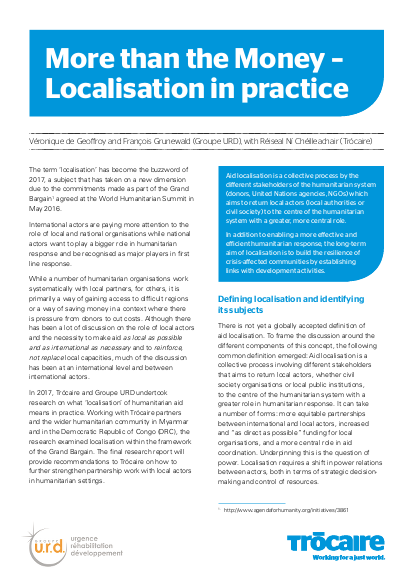
The term ‘localisation’ has become the buzzword of 2017, a subject that has taken on a new dimension due to the commitments made as part of the Grand Bargain1 agreed at the World Humanitarian Summit in May 2016.
International actors are paying more attention to the role of local and national organisations while national actors want to play a bigger role in humanitarian response and be recognised as major players in first line response.
While a number of humanitarian organisations work systematically with local partners, for others, it is primarily a way of gaining access to difficult regions or a way of saving money in a context where there is pressure from donors to cut costs. Although there has been a lot of discussion on the role of local actors and the necessity to make aid as local as possible and as international as necessary and to reinforce, not replace local capacities, much of the discussion has been at an international level and between international actors.
In 2017, Trócaire and Groupe URD undertook research on what ‘localisation’ of humanitarian aid means in practice. Working with Trócaire partners and the wider humanitarian community in Myanmar and in the Democratic Republic of Congo (DRC), the research examined localisation within the framework of the Grand Bargain. The final research report will provide recommendations to Trócaire on how to further strengthen partnership work with local actors in humanitarian settings.